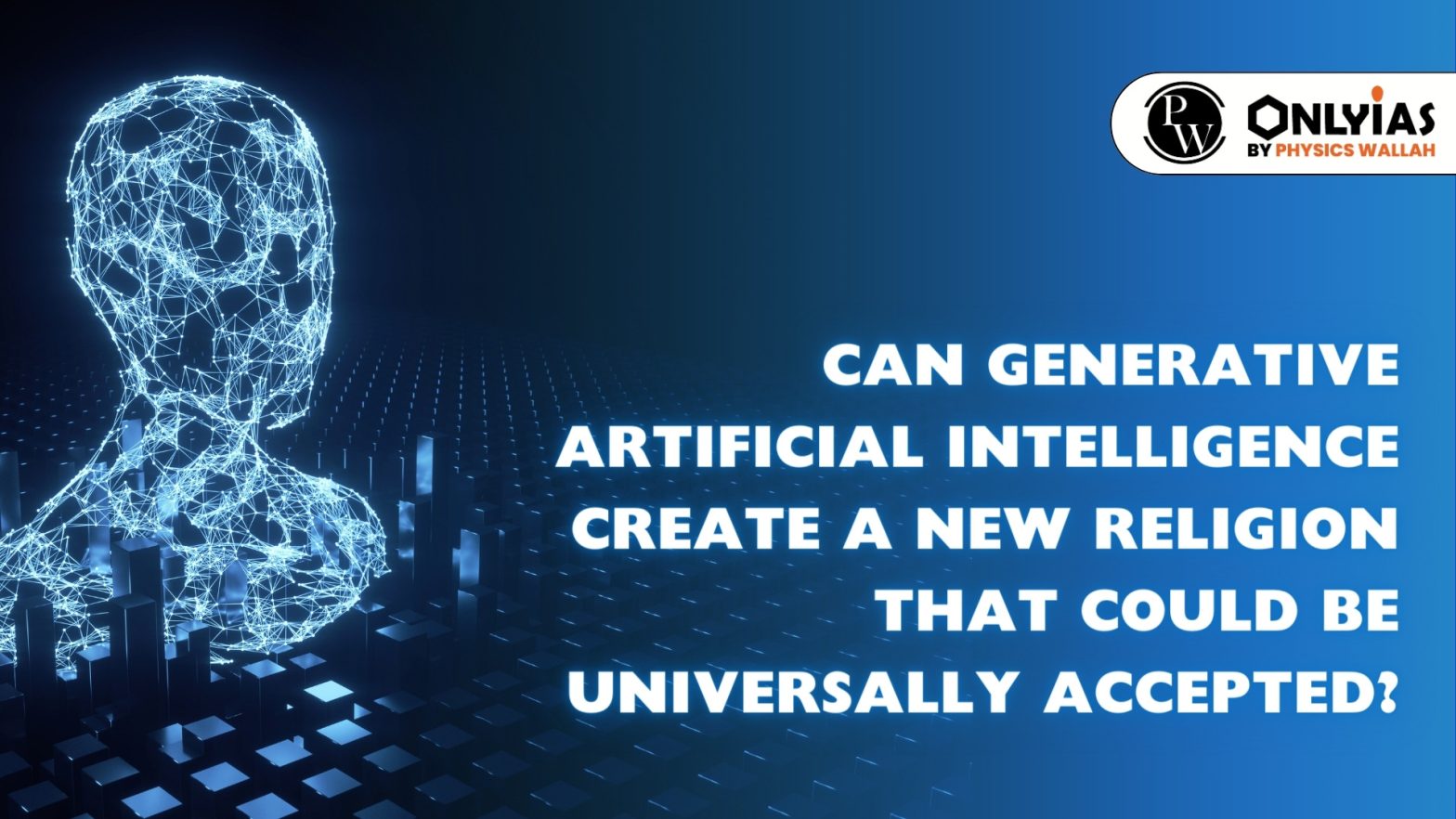![]() 14 Oct 2023
14 Oct 2023

| Relevancy for Prelims: Artificial Intelligence (AI), AI-Based Religion.
Relevancy for Mains: Artificial Intelligence (AI) and its role in resolving religious conflicts. |
|---|
Also read: Role Of Artificial Intelligence In Healthcare
There is a need to emphasize the potential for Artificial Intelligence to contribute to a universal faith that transcends historical divisions and conflicts.
| Prelims Question
Consider the following pairs: Terms sometimes see in news Context/Topic; (2018) 1. Belle II experiment: Artificial Intelligence 2. Blockchain technology: Digital/Cryptocurrency 3. CRISPR- Cas9: ParticlePhysics Which of the pairs given above is/are correctly matched? (a) 1 and 3 only (b) 2 only (c) 2 and 3 only (d) 1, 2 and 3 Ans: (b) |
|---|
| Mains Question: Introduce the concept of Artificial Intelligence (AI). How does Al help clinical diagnosis? Do you perceive any threat to privacy of the individual in the use of Al in healthcare? |
|---|

<div class="new-fform">
</div>